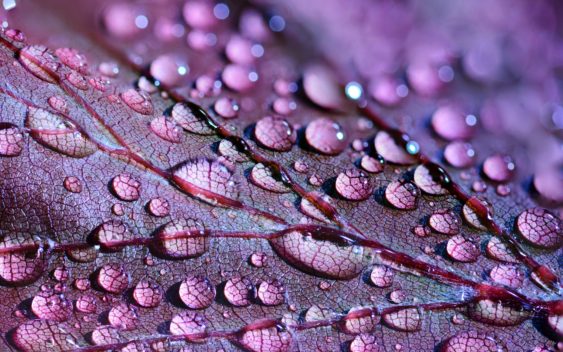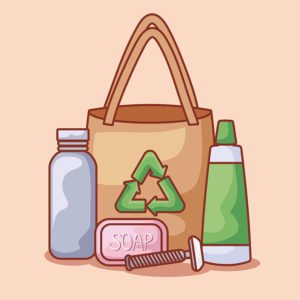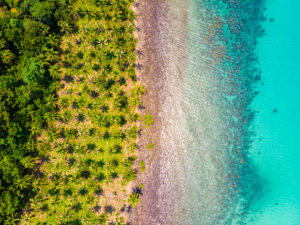What is Water Conservation
Water conservation is saving water. Water is a non-renewable natural resource. The less we use, the less it will cost us, and the less impact we will make on the environment. There are many reasons why we should conserve water. Find out more below!
Why You Should Conserve Water
Water is our most precious resource. Currently there is no reliable way to create water, without creating a deadly explosion. Some have tried pulling water droplets out of the air, but this hasn’t been developed on a large scale. There is also a technique called cloud seeding, where airplanes drop certain chemicals into clouds to make them rain, but it’s effectiveness is debatable.
Less developed nations have serious water problems. Clean drinking water can be hard to come by and even disease ridden. As much as 20 percent of the world population is hard pressed for drinking water. In the US, the cost of water is increasing. The nation’s water infrastructure is aging and current rates are not sufficient to support the maintenance needed to sustain our water needs now and in the future. Think about your children and grandchildren. How much are they going to have to pay for clean drinking water? How much would you pay for clean drinking water if there was a water shortage?
These are just a few reasons why we as humans should conserve water and treat it like the valuable resource that it is.
How to Conserve Water
There are many simple ways to conserve water. You probably already know a few ways to conserve water. The number one way to conserve water is to BE MINDFUL OF YOUR WATER USAGE. TO remember this you can use the acronym, B-MOY-WU. A lot of us use water like it’s going out of style. Like it costs nothing and will flow forever. We as humans need to change our perspective on water, if we want future generations to be as lucky as we are. If we don’t conserve water, there will be consequences, such as water shortages, no water for the poor, and spread of disease and contamination.
Saving Water at Home
- Install low flow devices on your faucets. Low flow devices use 1.5 gallons per minute versus older devices which use 2.2 gallons per minute.
- Get new toilets. Newer efficient toilets use 2 gallons per flush, while older toilets use 5 gallons per flush. This can add up to saving thousands of gallons per year.
- Reduce landscape water use. Consider harvesting rain for landscaping. Leftover drinking water can also be reused to water plants.
- Check your bills. Check for leaks and study utility bills to see if there have been any spikes in water usage. Contact plumbers ASAP and the utility company to see if part of your bill can be reduced during a leak.
- Stay on top of repairs. Don’t let that faucet drip any longer. Get it fixed today! Check other pipes for leaks and have them repaired.
Saving Water at Your Business
- Sweep instead of hosing off areas. Many businesses hose down areas which wastes a lot of water. Consider alternate cleaning methods.
- Inform employees of water saving measures. Post flyers and notes in bathrooms and kitchen areas reminding employees to be conscious of their water usage.
- Set conservation goals. If objectives aren’t written down, they don’t exist. Figure out how much you want to reduce your water usage, write down the goal and benchmark your progress each month.
- Install low-flow toilets or water saving devices. If you have a restaurant or other business with a lot of toilets, you can easily save thousands of dollars a year by upgrading your toilets. Older toilets can use up to 7 gallons of water per flush. Newer water efficient toilets use only 1-3 gallons of water per flush.
Major Water Usage Offenders!
There are some things we do at home that really use a lot of water that is easily prevented.
1. Washing the dishes by hand with the sink running.
- This is the #1 water usage offender! I myself am guilty of it. If you wash dishes like this, you are throwing money down the drain. There is a better way to wash dishes that saves water. First you take all of the dishes out of the sink and put the stopper in the drain so the water doesn’t drain. Fill it up with hot soapy water. Use that hot soapy water to wash the dishes! That way you don’t need to leave the water running. You can rinse the soapy dishes in the other side of the sink that is filled with clean water. Or just rinse them with the faucet, but turn it off as soon as you are done. Another option is just using a dish washer. Dishwashers use less water than washing dishes by hand.
2. Leaving the shower running.
- This wastes thousands of gallons per year. Don’t leave it running! Turn it on when you are ready and turn it off when you are done.
3. Letting your Toilet Run
- Does your toilet run? If you hear it running when you are not using it, or if you hear it running every few hours, you have a leak in the seal of your toilet that is causing it to fill up constantly. Toilet leaks can add up to hundreds of thousands of gallons of wasted water. You won’t notice the leak, because its not going onto the floor. There is a flapper valve in the back of your toilet that is not sealing for some reason or another. The flapper can easily be replaced for less than $10 and can save you $100’s of dollars.
Calculate How Much Money You Can Save if You Conserve Water
Now that we know how important it is to save water, its time to start doing it. Once you see how much money you can save by conserving water, you will want to do it even more! Use the calculator below to find out your average cost per gallon, and how much you can save annually by reducing your usage. You will need to know your monthly consumption and your water bill cost per month. This information can be found on your monthly water bill.
Declining Water Infrastructure
In the U.S. the infrastructure that makes up our water systems is aging. The water industry is facing major challenges to keep up with the demand. In some cities, water costs have increased 50% in the past few years. This is a result of the costs associated with maintaining the water infrastructure. This is another important reason why we should conserve water. The less water we use, the less damage and erosion will occur to the water systems.
Water Crisis in America
The water infrastructure in the U.S. is over 100 years old and will cost over 1 trillion dollars to replace. 1.7 trillion gallons of water are wasted every year due to leaking pipes and broken pipes. 44% of America’s water infrastructure is considered poor. The American Society of Civil Engineers gave the United States a D+ grade for the state of its water infrastructure.

Thanks to Eastern Kentucky University for that awesome infographic.
Conclusion
Now that you know how important it is to conserve water, how to conserve water, and how much money you can save water, you are a water conservation expert! Now go out there and save some water people! Our future depends on it.




